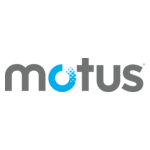Vehicle Ownership and Operating Cost Analyses Reveals Inflation, Fuel Prices, and Acquisition Costs Underpin New Mileage Rate
BOSTON–(BUSINESS WIRE)–The Internal Revenue Service (IRS) has unveiled the 2024 business mileage standard rate of 67 cents, leveraging data provided by Motus, the leader in mobile workforce reimbursement solutions. Renowned for their expertise in comprehending overall vehicle ownership and usage expenses, Motus harnesses data from the world’s largest pool of retained drivers. By analyzing automotive trends from the preceding year, the IRS determines the annual rate – an essential benchmark for deducting business vehicle expenses. For over four decades, the cost data and analysis provided by Motus have been the cornerstone of the IRS business mileage standard.
The 2024 business mileage standard rate increased to 67 cents from the 2023 mid-year adjustment of 1.5 cents and will go into effect January 1, 2024. Driving costs have changed in 2023 due to some key factors and trends, including:
- Decreases in fuel prices: Fuel prices spiked in summer of 2022 and have fallen more than 20% since that time.
- Increases to vehicle acquisition costs: Vehicle acquisition costs continue to increase slightly, but not to the extent seen in previous years. While the average cost of a new vehicle is at an all-time high, that cost has only risen about 1.5% year-over-year, which is the lowest increase in the past 7 years.
- Increases in depreciation: Concerns over inflation, coupled with the high cost of new vehicles and the lingering impact of supply chain issues, have created a higher demand for used vehicles. This results in lower residual values for new vehicles, and the corresponding higher depreciation increases the overall cost of vehicle ownership.
In addition to individual tax deduction, the IRS business mileage standard rate offers a tax-free threshold for reimbursements that U.S. employers make to employees. Organizations are typically required to reimburse their mobile workforce for the business use of the personally owned assets that are necessary to fulfill work-related responsibilities, which includes vehicles. The IRS rate can be used in a cents-per-mile (CPM) program ideal for low-mileage drivers who travel fewer than 5,000 business miles per year. For mid- and high-mileage drivers, reimbursements need to account for differences in vehicle ownership and operating costs, which can fluctuate throughout the year and are geographically specific in order to be compliant. This means businesses that rely on the IRS rate to reimburse mid- and high-mileage workers are likely providing reimbursements that do not reflect actual driving costs. By treating all employees’ expenses as the same regardless of location or individual situations, reimbursement using the IRS rate creates winners and losers by over or under reimbursing employees for their costs. For these high-mileage drivers, the IRS-recommended method of the Fixed and Variable Rate (FAVR) reimbursement is most appropriate as it provides fair and accurate reimbursements based on the costs of vehicle ownership and fuel costs, localized to the places employees live and work. Together, a FAVR and CPM program allows companies to provide compliant and fair reimbursement solutions for every driver regardless of annual driving amount.
“As we continue to face economic uncertainty, there are many factors contributing to increased driving costs,” said Phong Nguyen, CEO of Motus. “At Motus, we offer the broadest range of tax-advantaged reimbursement programs to provide solutions for every driver and manage them from a centralized platform – setting us apart as the industry leader. It’s important for business leaders to prioritize their mobile employees who depend on their cars for work by providing the best reimbursement methodologies for individual costs related to owning and operating a vehicle.”
Motus gives companies visibility and control over their complete vehicle reimbursements and risks while improving employee satisfaction by offering the broadest range of tax advantaged reimbursement programs. Proactive optimization produces the best results over the life of every program –powered by superior service and support for savings that are IRS compliant and substantiated. More companies trust Motus to achieve their vehicle reimbursement business objectives and successfully manage changes that impact employees. Motus calculates that organizations have saved more than $1.4 billion using the Motus Platform compared to the IRS business mileage standard since 2011.
For more information about the IRS business mileage standard rate, mileage reimbursement and vehicle management options, please visit https://resources.motus.com/.
About Motus
Motus is the definitive expert in mobile workforce solutions. Its platforms simplify the reimbursement and management of vehicle and device costs through personalized calculations. Powered by an unmatched pool of data, refined over more than 80 years, Motus is the trusted advisor for top Fortune 500 companies and organizations committed to workplace agility. Motus automotive data, also underpins the annual Internal Revenue Service (IRS) business mileage standard, the amount an individual can deduct for business vehicle expenses. For more information, please visit www.motus.com or connect with us on Twitter, Facebook, Instagram or LinkedIn.
Contacts



